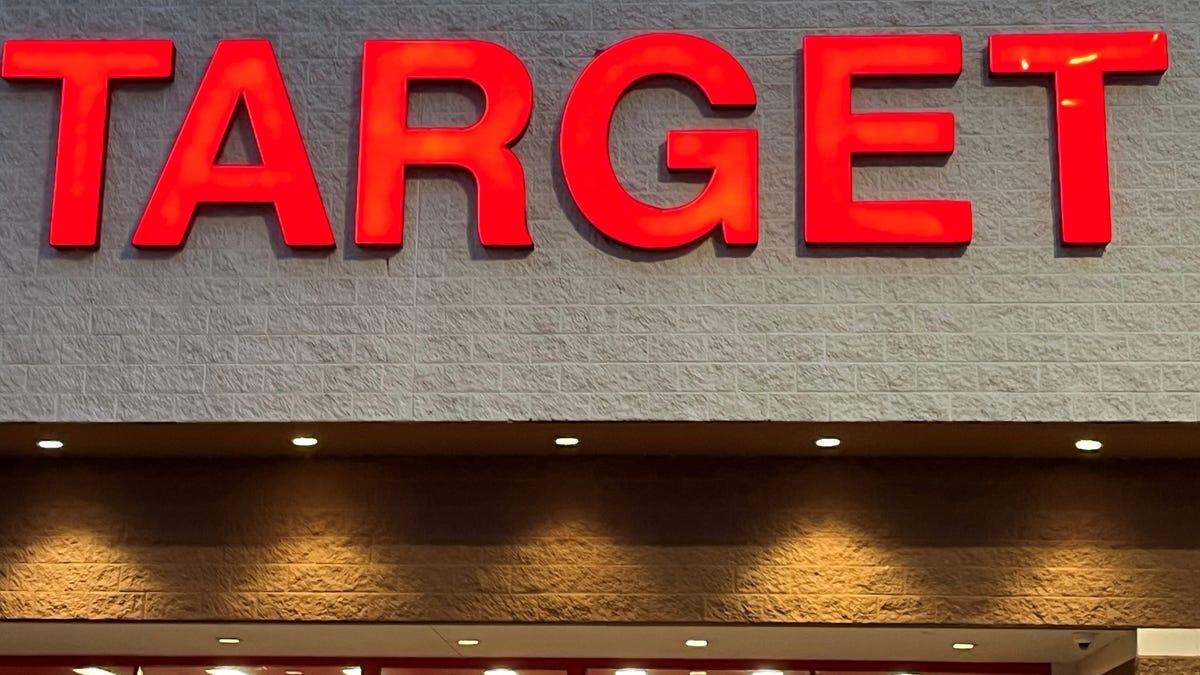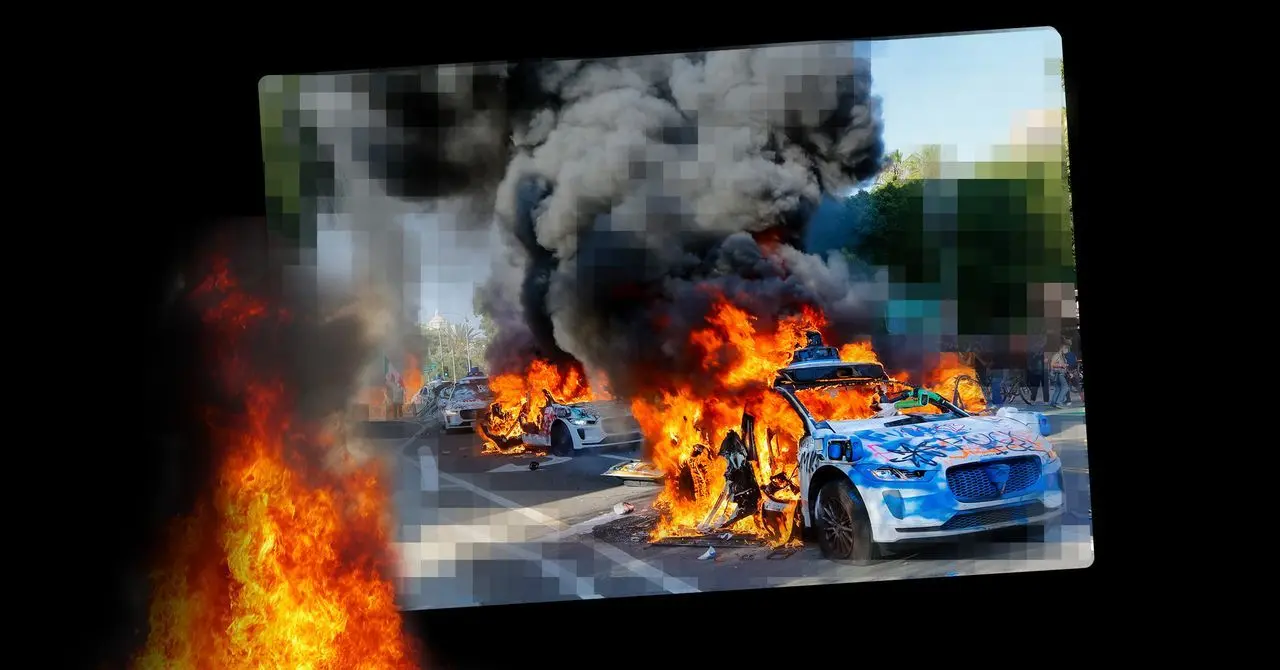AI-Powered Analysis Uncovers Fake Accounts Fueling Target DEI Boycott
2 Sources
2 Sources
[1]
What fueled the Target DEI boycott? The answer may surprise you
Consumer boycotts are targeting companies like Amazon and Target, who've rolled back DEI initiatives, but are they working? Here's what we know. An orchestrated campaign to stoke tensions over Target's rollback of diversity, equity and inclusion initiatives deployed fake accounts to flood social media with manufactured outrage, a new report claims. Israeli tech firm Cyabra analyzed thousands of posts on social media platform X from Jan. 1 to April 21 as shoppers vented over Target's pullback and activists organized grassroots boycotts. It determined that 27% of the social media accounts it sampled were fake and "contributed significantly to the viral backlash." Inauthentic sentiment surged 764% after Target's announcement to roll back some diversity programs, Cyabra found. The accounts impersonating Black users actively promoted calls to boycott Target, using trending hashtags such as #EconomicBlackout. Some posts accused Target of "bending the knee" to President Donald Trump, others pushed specific campaigns such as "Target Fast" or "40-day boycott" to persuade people to stop shopping at Target. Cyabra analysts, who use artificial intelligence to identify fake accounts, also uncovered profiles posing as "conservative" voices who mocked the Target boycott. These accounts claimed they already boycott Target over its "woke" policies. While Cyabra said it did not find clear evidence that this was also a rigged campaign to dupe Target shoppers, exploiting political and cultural divisions is a common tactic by influence operations. Similar tactics have been used against other major brands including Nike, Costco and Starbucks, Cyabra spokeswoman Jill Burkes said. "We've seen this kind of behavior in disinformation campaigns tied to elections, brands and social movements around the world," Burkes said. "When fake profiles move in sync, mimic real users and amplify both sides of a divisive issue, it's a clear sign of manipulation. That's what we saw here." Cyabra said it examined the online discussions around the Target boycott after its system flagged multiple tell-tale signs of inauthentic behavior such as spikes in engagement, rapid viral backlash, synchronized messaging, high-volume posting and an unusually high number of fake accounts. Target did not respond to a request for comment. The backlash against DEI gained momentum during the 2024 presidential campaign but hit a fever pitch when Trump took office and issued a series of executive orders aimed at eliminating "illegal DEI" in the federal government and the private sector. Target was one of the corporations to make concessions in the rapidly changing political climate. In recent months, its customers have pulled back on discretionary purchases amid growing anxiety over the economy and inflation. The company also cited its decision to scrap some diversity policies as a contributor to the sharp pullback in consumer spending in the first quarter as church pastors and other community activists launched protests, spreading word of planned boycotts on social media. Target said the boycotts dented its first-quarter performance but could not estimate by how much. The Cyabra report raises the question if the coordinated campaign of fake accounts had real-world impact on Target. A follow-up analysis of X conversations from May 27 to June 3 found that the coordinated campaign against Target continued to resonate long after the boycotts began, according to Cyabra. Fake social media profiles made up 39% of the accounts, on some days outnumbering authentic profiles. Many of these accounts continued to call on shoppers to boycott Target and promoted the #EconomicBlackout's new campaign that began this week. Nekima Levy Armstrong, a Minneapolis activist who started a Target boycott on Feb. 1, said she could not comment on the Cyabra report. "I'm not on X and I know our people in Minneapolis have no involvement in this situation," she said.
[2]
Bogus social media accounts fueled backlash over Target rollback of...
A coordinated campaign used bogus social media accounts to amplify backlash against Target after the company scaled back its Diversity, Equity and Inclusion initiatives, according to a blockbuster report. An analysis by Israeli tech firm Cyabra found that nearly a third of the social media accounts driving outrage over the retail giant's policy change were fake. The Minneapolis-based retailert announced it would roll back its controversial initiatives -- which had drawn scorn from conservatives for touting items such as tuck-friendly bathing suits -- after President Trump returned to the White House on Jan. 20. Cyabra reviewed thousands of posts on Elon Musk-owned X, formerly Twitter, from Jan. 1 to April 21 and discovered that 27% of the accounts were inauthentic -- many of which played a major role in pushing boycott narratives. Cyabra's data showed that inauthentic posts jumped 764% after Target's announcement, flooding the platform with calls for consumer boycotts and viral hashtags like #EconomicBlackout. The firm's CEO, Dan Brahmy, described the backlash as a calculated effort to manufacture outrage. "What happened with Target is a masterclass in manufactured outrage," Brahmy told The Post on Thursday. "Fake accounts hijacked the narrative, weaponized identity and pushed a boycott that looked grassroots but was anything but. This is how influence operations work now -- they blur the line between real and fake until no one can tell the difference." Many of the fake accounts were designed to mimic real users and took on the identities of black consumers or conservative commentators, according to Cyabra's findings, which were obtained by The Post. Some profiles pushed slogans such as "Target Fast" and "40-day boycott," while others accused the retailer of "bending the knee" to Trump. One purported X user with the handle NenelsBack posted on Jan. 27: "Target can't get my money. It's like being betrayed by a family member. We gave Target so much respect. BLK folk named Target, Targe't." Another with the handle Nickolas Medina fanned the flames on the boycott push by posting on April 18: "I stopped going to Target because of their support for the trans agenda. I think that is a greater motivation for people to boycott Target Target than DEI." Both were found to be posted by fake accounts, according to the report, first cited by USA Today. "We don't just look at what's being said, we analyze how it's being said, and whether they are even real," Cyabra spokesperson Jill Burkes told The Post. "We flag accounts that post in lockstep, recycle the same hashtags and slogans, or only interact within closed loops of other suspicious accounts." Cyabra, which uses artificial intelligence to detect coordinated manipulation campaigns, did not find clear evidence linking the campaign to a specific foreign or domestic actor. However, the tactic of inflaming culture war debates through synthetic engagement has become increasingly common, particularly in polarized consumer environments. In a follow-up analysis of conversations on X from May 27 to June 3, Cyabra found the campaign had not only persisted but intensified. On some days, fake accounts made up 39% of the conversation -outnumbering genuine users. Cyabra has seen similar tactics used against other major brands, from fast food chains to tech companies. "The playbook is similar: hijack a polarizing moment, flood the zone with fake voices and let real users do the rest," Burkes said. "That's exactly what happened with Target. And it works -- the stock dropped $12 billion and real people joined the boycott thinking they were part of a massive groundswell. Many still are." The Post has sought comment from Target. Last month, Target lowered its full-year sales forecast. CEO Brian Cornell blamed several headwinds, including "the reaction to the updates we shared on [DEI] in January." Minneapolis activist Nekima Levy Armstrong, who launched a grassroots boycott of Target on Feb. 1, told USA Today she had no knowledge of the disinformation campaign identified by Cyabra. "I'm not on X and I know our people in Minneapolis have no involvement in this situation," Armstrong said.
Share
Share
Copy Link
A report by Israeli tech firm Cyabra reveals that a significant portion of social media accounts driving the Target DEI boycott were inauthentic, highlighting the role of AI in detecting disinformation campaigns.
AI Uncovers Coordinated Disinformation Campaign
A groundbreaking report by Israeli tech firm Cyabra has revealed that a significant portion of the social media backlash against Target's rollback of Diversity, Equity, and Inclusion (DEI) initiatives was fueled by fake accounts. Using artificial intelligence to analyze thousands of posts on the social media platform X, Cyabra found that 27% of the accounts sampled were inauthentic and "contributed significantly to the viral backlash"
1
.The Anatomy of a Manufactured Outrage

Source: New York Post
The AI-powered analysis uncovered a sophisticated disinformation campaign that exploited political and cultural divisions. Fake accounts impersonating both Black users and conservative voices flooded social media with calls for boycotts and trending hashtags such as #EconomicBlackout. Some posts accused Target of "bending the knee" to President Donald Trump, while others promoted specific campaigns like "Target Fast" or "40-day boycott"
2
.Dan Brahmy, CEO of Cyabra, described the situation as "a masterclass in manufactured outrage," where fake accounts "hijacked the narrative, weaponized identity, and pushed a boycott that looked grassroots but was anything but"
2
.AI's Role in Detecting Disinformation
Cyabra's system flagged multiple tell-tale signs of inauthentic behavior, including:
- Spikes in engagement
- Rapid viral backlash
- Synchronized messaging
- High-volume posting
- Unusually high number of fake accounts
The firm's AI algorithms analyze not just the content of posts, but also how they're being disseminated and whether the accounts are genuine. This approach allows for the detection of coordinated manipulation campaigns that might otherwise go unnoticed
1
.Real-World Impact of Virtual Outrage
The coordinated campaign appears to have had tangible effects on Target's business. The company cited the backlash against its DEI policy changes as a contributor to the sharp pullback in consumer spending in the first quarter. Target's stock reportedly dropped $12 billion, and many real users joined the boycott, believing they were part of a massive grassroots movement
2
.Related Stories
Persistent and Intensifying Campaign

Source: USA Today
A follow-up analysis by Cyabra from May 27 to June 3 found that the coordinated campaign against Target had not only persisted but intensified. On some days, fake accounts made up 39% of the conversation, outnumbering genuine users. These accounts continued to promote boycotts and new campaigns like #EconomicBlackout
1
2
.Broader Implications for Brand Management
While Cyabra did not find clear evidence linking the campaign to a specific actor, the tactic of inflaming culture war debates through synthetic engagement has become increasingly common. Similar tactics have been used against other major brands, including Nike, Costco, and Starbucks
1
.This incident highlights the growing challenge companies face in managing their brand reputation in an era of sophisticated disinformation campaigns. It also underscores the critical role AI can play in detecting and combating such coordinated efforts to manipulate public opinion.
References
Summarized by
Navi
Related Stories
Recent Highlights
1
ByteDance's Seedance 2.0 AI video generator triggers copyright infringement battle with Hollywood
Policy and Regulation

2
Demis Hassabis predicts AGI in 5-8 years, sees new golden era transforming medicine and science
Technology

3
Nvidia and Meta forge massive chip deal as computing power demands reshape AI infrastructure
Technology








